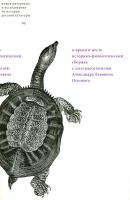И время и место: Историко-филологический сборник к шестидесятилетию Александра Львовича Осповата. Сборник статей
Чтение книги онлайн.

Читать онлайн книгу И время и место: Историко-филологический сборник к шестидесятилетию Александра Львовича Осповата - Сборник статей страница 48
Название: И время и место: Историко-филологический сборник к шестидесятилетию Александра Львовича Осповата
Автор: Сборник статей
Жанр: История
Серия: Новые материалы и исследования по истории русской культуры
isbn: 978-5-98379-101-5
isbn:
So, against this background of Lyceum comradeship and shared experience how did the mercurial schoolboy begin to become, to quote Nabokov, “Russia’s most essential and most European” writer, “the greatest poet of his time (and perhaps of all time, excepting Shakespeare)”?8 Perhaps the first thing that alerts us to the youngster’s potential uniqueness is his receptiveness to the creative impulse, to the way that sound and sense suddenly come together in his consciousness and then are born into (zarozhdenie tvorchestva) something altogether different and mesmerizing.9 Pushkin, let us recall, has forever been associated with “harmonious sounds” (garmonicheskie zvuki, which subsequent scholars have duly linked to the influences of Batiushkov and Zhukovskii) and a free, unfettered intonation (intonatsiia). But even here the freedom with which he is able to say something seems in excess of anything he could have learned from respected older contemporaries. This is how he presents the onset of the rhyming urge in “To My Aristarchus” (Moemu Aristarkhu, 1815):
Сижу ли с добрыми друзьями,
Лежу ль в постеле пуховой,
Брожу ль над тихими водами
В дубраве темной и глухой,
Задумаюсь – взмахну руками,
На рифмах вдруг заговорю…
[I can be sitting with good friends,
Or lying in a feather bed,
Or wandering near quiet waters
In an oak grove dark and deserted,
When I fall to musing, wave my arms,
And suddenly start to speak in rhyme…]
The process comes over the speaker unbidden, and this very unbidden quality is signaled by the simplicity and parallelism/internal order of the utterance (i.e. it is natural, organic): the three imperfective verbs (“sizhu,” “lezhu,” “brozhu”) followed by three locative constructions denoting uninterrupted activity are then broken into by the three perfective verbs (“zadumaius,” “vzmakhnu,” “zagovoriu”) betokening a change in status. That the initiation of the verbal rush is preceded by a physical gesture (“vzmakhnu rukami”) reinforces the seemingly spontaneous, almost “metabolic” character of the shift to creative activity. And so it will be Pushkins entire poetic career. Examples are too numerous to list here, hence we will limit ourselves to the following excerpt from the great meditative poem,“Osen (Otryvok)” (Autumn [AFragment], 1833):
X
…
Душа стесняется лирическим волненьем,
Трепещет и звучит, и ищет, как во сне,
Излиться наконец свободным проявленьем —
…
XI
И мысли в голове волнуются в отваге,
И рифмы легкие навстречу им бегут,
И пальцы просятся к перу, перо к бумаге,
Минута – и стихи свободно потекут.
…
XII
…Куда ж нам плыть?…….
……………………………
……………………………
(III, 321; my emphasis)
X
The soul is overwhelmed by lyrical agitation,
It trembles and sounds aloud, and seeks, as in a dream,
To pour itself out at last in a free display —
…
XI
And thoughts in one’s head surge in brave agitation,
And light rhymes go out to meet them,
And one’s fingers ask for the pen, the pen for paper,
Wait a minute and verses begin to flow freely.
…
XII
.. Where shall we sail?…….
……………………………..
……………………………..
Once again Pushkin aligns the lyrical urge, the need to express the harmony accumulating within, with something physical, concrete – the fingers reaching out for the pen and the pen seeking the paper.
The second thing we immediately notice, which is tied to the unconstrained quality of his intonation, is the young Pushkin s astonishing genre dexterity, where each genre equals a distinct voice, style, lexicon, poetic structure. This facility with different ways of saying things poetically could be an aspect of the legacy of parlor games and wordplay that the boy absorbed in the presence of his parents (Sergei L’vovich was known in the literary salons of St. Petersburg as a kind of verbal quick-change artist) and their friends. In any event, for his classes and on his own Pushkin tried his hand at all the different types of poem practiced at the time. Madrigal, noël, elegy, friendly epistle, epitaph, Anacreontica, ode, romance, hussar drinking song, epic, love lyric – he fit into each of these effortlessly. It was as though he were trying on a new costume with each one and took delight in cavorting before the mirror.10 His ability to mimic, to ventriloquize the voice zone of the genre, was what separated him from the others.11 In other words, he had the poetic equivalent of perfect pitch. An illustration shows the difference between Pushkin and his mates in this respect. Illichevskii loved to create anagrams, or in his terms, “charade logogriphs,” that acted out a word in the form of a riddle. These puzzles were then included in The Lyceum Sage (Litseiskii mudrets), one of the school’s several journals, which everyone read and in which Pushkin took active part. In one such anagram Illichevskii describes three items without naming them which when combined would decorate a gravesite – something bundled together (kipa = “stack”), a legendary, though faint-hearted warrior (Paris), and a type of food (ris = “rice”). The answer yields kiparis, or “cypress tree.”12 Illichevskii’s riddle is self-contained (there is nothing extraneous to it) and shows beautifully how these bright young students came at language.
But in Pushkin’s wordplay there was invariably a kind of challenge. In 1816 he came up with his own charade entitled “Comparison” (Sravnenie):
He хочешь ли узнать, моя драгая,
Какая СКАЧАТЬ